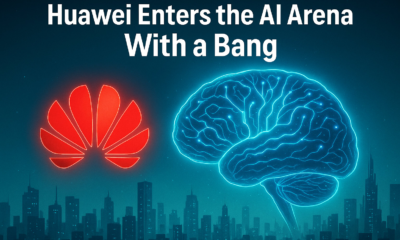Bottom Line: Mount Sinai researchers developed an AI model to make individualized treatment recommendations for atrial fibrillation (AF) patients-helping clinicians accurately decide whether or not to treat them with anticoagulants (blood thinner medications) to prevent stroke, which is currently the standard treatment course in this patient population. This model presents a completely new approach for how clinical decisions are made for AF patients and could represent a potential paradigm shift in this area.
In this study, the AI model recommended against anticoagulant treatment for up to half of the AF patients who otherwise would have received it based on standard-of-care tools. This could have profound ramifications for global health.
Why the study is important: AF is the most common abnormal heart rhythm, impacting roughly 59 million people globally. During AF, the top chambers of the heart quiver, which allows blood to become stagnant and form clots. These clots can then dislodge and go to the brain, causing a stroke. Blood thinners are the standard treatment for this patient population to prevent clotting and stroke; however, in some cases this medication can lead to major bleeding events.
This AI model uses the patient’s whole electronic health record to recommend an individualized treatment recommendation. It weighs the risk of having a stroke against the risk of major bleeding (whether this would occur organically or as a result of treatment with the blood thinner). This approach to clinical decision-making is truly individualized compared to current practice, where clinicians use risk scores/tools that provide estimates of risk on average over the studied patient population, not for individual patients. Thus, this model provides a patient-level estimate of risk, which it then uses to make an individualized recommendation taking into account the benefits and risks of treatment for that person.
The study could revolutionize the approach clinicians take to treat a very common disease to minimize stroke and bleeding events. It also reflects a potential paradigm change for how clinical decisions are made.
Why this study is unique: This is the first-known individualized AI model designed to make clinical decisions for AF patients using underlying risk estimates for the specific patient based on all of their actual clinical features. It computes an inclusive net-benefit recommendation to mitigate stroke and bleeding.
How the research was conducted: Researchers trained the AI model on electronic health records of 1.8 million patients over 21 million doctor visits, 82 million notes, and 1.2 billion data points. They generated a net-benefit recommendation on whether or not to treat the patient with blood thinners.
To validate the model, researchers tested the model’s performance among 38,642 patients with atrial fibrillation within the Mount Sinai Health System. They also externally validated the model on 12,817 patients from publicly available datasets from Stanford.
Results: The model generated treatment recommendations that aligned with mitigating stroke and bleeding. It reclassified around half of the AF patients to not receive anticoagulation. These patients would have received anticoagulants under current treatment guidelines.
What this study means for patients and clinicians: This study represents a new era in caring for patients. When it comes to treating AF patients, this study will allow for more personalized, tailored treatment plans.
Quotes:
“This study represents a profound modernization of how we manage anticoagulation for patients with atrial fibrillation and may change the paradigm of how clinical decisions are made,” says corresponding author Joshua Lampert, MD, Director of Machine Learning at Mount Sinai Fuster Heart Hospital. “This approach overcomes the need for clinicians to extrapolate population-level statistics to individuals while assessing the net benefit to the individual patient-which is at the core of what we hope to accomplish as clinicians. The model can not only compute initial recommendations, but also dynamically update recommendations based on the patient’s entire electronic health record prior to an appointment. Notably, these recommendations can be decomposed into probabilities for stroke and major bleeding, which relieves the clinician of the cognitive burden of weighing between stroke and bleeding risks not tailored to an individual patient, avoids human labor needed for additional data gathering, and provides discrete relatable risk profiles to help counsel patients.”
“This work illustrates how advanced AI models can synthesize billions of data points across the electronic health record to generate personalized treatment recommendations. By moving beyond the ‘one size fits none’ population-based risk scores, we can now provide clinicians with individual patient-specific probabilities of stroke and bleeding, enabling shared decision making and precision anticoagulation strategies that represent a true paradigm shift,”adds co-corresponding author Girish Nadkarni, MD, MPH, Chair of the Windreich Department of Artificial Intelligence and Human Health at the Icahn School of Medicine at Mount Sinai.
“Avoiding stroke is the single most important goal in the management of patients with atrial fibrillation, a heart rhythm disorder that is estimated to affect 1 in 3 adults sometime in their life”, says co-senior author, Vivek Reddy MD, Director ofCardiac Electrophysiology at the Mount Sinai Fuster Heart Hospital. “If future randomized clinical trials demonstrate that this Ai Model is even only a fraction as effective in discriminating the high vs low risk patients as observed in our study, the Model would have a profound effect on patient care and outcomes.”
“When patients get test results or a treatment recommendation, they might ask, ‘What does this mean for me specifically?’ We created a new way to answer that question. Our system looks at your complete medical history and calculates your risk for serious problems like stroke and major bleeding prior to your medical appointment. Instead of just telling you what might happen, we show you both what and how likely it is to happen to you personally. This gives both you and your doctor a clearer picture of your individual situation, not just general statistics that may miss important individual factors,” says co-first author Justin Kauffman, Data Scientiest with the Windreich Department of Artificial Intelligence and Human Health.
Source:








































